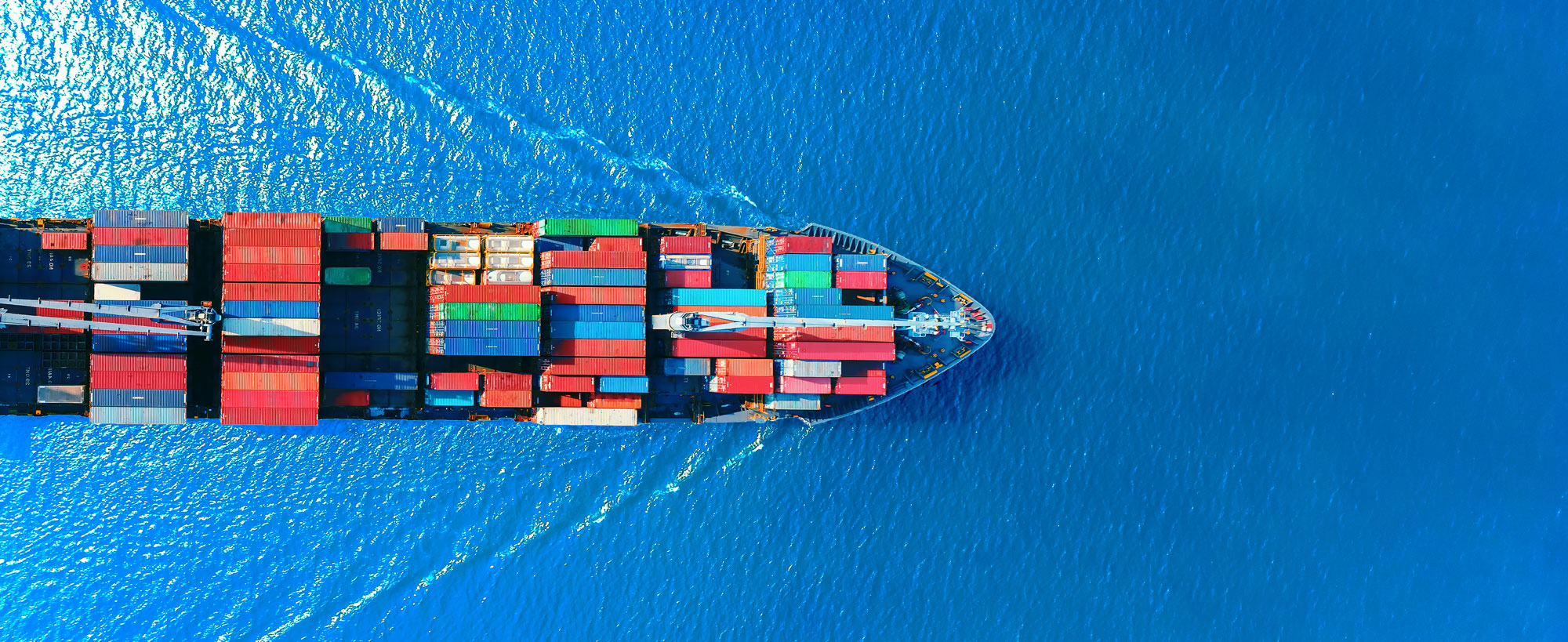
Green principles for the shipping industry
An agreement spearheaded by a coalition of major banks is helping to put the world’s commercial maritime fleets on a more sustainable footing
At the end of 2020, Seaspan, the biggest lessor of container ships in the world, agreed to one of the sector’s first sustainability-linked loans, sized at $250m. The deal, which creates financial incentives for the company to reduce carbon emissions over the coming years, was signed under the auspices of the Poseidon Principles, a groundbreaking 2019 framework co-designed by Societe Generale and other large banks that sets the standard in environmentally responsible financing for the global shipping industry.
The basis of the initiative is that signatory banks measure and publicly report the carbon intensity of their shipping loan portfolios, and that the impact on behaviour and lending strategies going forward will have long-term implications for the sector as a whole.
“By bringing climate alignment into our credit decisions, banks determine on which vessels their capital will be deployed – and this directly influences which vessels sail on the oceans,” says Paul Taylor, Societe Generale’s Global Head of Shipping and Offshore. “You cannot underestimate the power of a coalition to help bring about a much-needed energy transition in the shipping sector, a coalition built on accountability and transparency.”
With more than 50,000 merchant ships registered in 150-plus countries, the industry is responsible for the transport of about 90 per cent of world trade in terms of volume, making it a centrepiece of the global economy. “Without shipping, countries couldn’t trade, half the world would freeze and the other half would starve,” says Dr Tristan Smith, Associate Professor at the UCL Energy Institute and co-founder of University Maritime Advisory Services (UMAS), a sector-focused commercial advisory service. “It’s a critical enabler of 8bn people living on the planet.”
Yet the industry is also a substantial polluter, accounting for more than 3 per cent of global emissions. And it is one of the fastest-growing sources of emissions, with estimates suggesting that without prompt action commercial shipping could make up about 15 per cent of global carbon emissions by 2050.

By linking environmentally responsible lending to financing decisions, the Poseidon Principles mark the first significant step towards decarbonisation in a sector where technological barriers and lack of infrastructure for alternative fuels have made carbon reduction challenging. The agreement is also in line with the goals set by the industry regulator, the International Maritime Organization (IMO), to reduce carbon emissions by at least 50 per cent in time for 2050 and, according to Paul Taylor, “the Poseidon Principles have the agility to align with more stringent trajectories in the likely event that the IMO intensifies its targets post COP26”.
Dr Tristan Smith of UCL says that all this marks a turning point for the industry. “The Principles will have a huge effect, because they create changes in behaviour,” he says. “They put emissions, and meeting reduction targets, front and centre of every conversation that takes place between banks and anyone in the shipping industry that needs funding.”
The agreement now has 28 signatory banks, accounting for well over $200bn in commercial maritime loans – about 50 per cent of the total – compared with just 11 signatories in 2019, when it came into force. At current rates of growth, bank lending through the Poseidon Principles will soon constitute the majority of new commercial shipping loans.
Poseidon signatories issued more than $1.2bn in sustainable maritime ship financing in 2020 alone, the first full year of the agreement’s implementation. During the first half of 2021, banks issued almost $1bn in Poseidon-linked debt, including new kinds of financial instruments beyond just loans. Seaspan is already working towards outperforming the carbon efficiency targets laid out under the $250m six-year loan. Carbon efficiency is measured via the Annual Efficiency Ratio (AER), which is calculated based on a vessel’s fuel consumption, total distance travelled and design deadweight tonnage.
Seaspan is also working to create sustainability-linked charters under which its customers would be financially rewarded if they outperformed previously agreed AER targets for the vessels they lease. “It’s an approach that flowed directly from the Poseidon Principles’ financing,” says Matt Borys, Treasurer and Head of Capital Markets at Atlas Corporation, Seaspan’s parent company. “The aim is to align incentives across the supply chain as they relate to carbon efficiency.”

John Hatley, General Manager for Market Innovation at Wärtsilä, a company that is helping its customers to reduce their emissions with a range of solutions including engines, propulsion systems and hybrid technology for the shipping industry, says that the Poseidon Principles and Sea Cargo Charter are shaping the market and pushing owners to retrofit existing fleets to meet international greenhouse gas (GHG) regulations.
Retrofitting will be an essential stepping stone in the sector’s green journey, given that many of the vessels on the water today will still be in service in a decade or more. “Companies are asking us about efficiency upgrade solutions. They want to lower fuel consumption and reduce emissions. This shows that the banks and charterers are influencing the market and propagating a desire to adopt decarbonisation strategies today” Hatley says.
At the same time, companies are starting to explore alternative fuels as a way of reducing their footprints. In August 2021, the Danish shipping giant Maersk announced that it had ordered eight vessels that are able to run on carbon-neutral methanol, in addition to traditional fossil fuel, as part of the business’s drive to decrease carbon emissions.
A statement from Maersk said that the vessels were between 10 and 15 per cent more expensive than conventional ones, but the company has managed to offset the additional cost via improved financing terms, thanks to the new ships’ implied carbon reduction.
Ultimately, argues Taylor of Societe Generale, the Poseidon Principles could become a blueprint for various hard-to-decarbonise industries, including steel, insurance and aviation. “Other sectors are looking at doing similar things, and this is because we’ve given accountability and transparency on carbon data in our industry where none existed before. Transparency must be the way forward for all”, he says.










